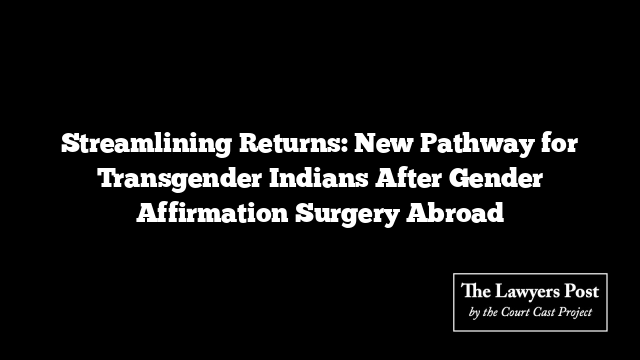In a landmark step towards inclusivity, the Delhi High Court recently reviewed a framework established by the Indian government to simplify the return process for transgender citizens who undergo gender affirmation surgery abroad. This development addresses long-standing concerns about challenges faced when personal details, such as name and gender, no longer align with their passports.
The Ministry of External Affairs (MEA) has clarified that transgender individuals can now re-enter India by providing a sworn affidavit of their gender change and a certificate from the hospital where the surgery took place. This measure complements existing provisions under the Transgender Persons (Protection of Rights) Act, which allow for obtaining identity documents reflecting gender changes.
For cases where these documents are not immediately available, the government has introduced an emergency provision. An Emergency Certificate may be issued, noting the medical intervention, enabling the individual to travel back to India. Upon arrival, they can obtain updated identity documents from relevant Indian authorities and apply for a revised passport.
The Court acknowledged the steps taken by the government and directed the necessary revisions to the passport manual to reflect these changes, emphasizing the need for a streamlined and sensitive approach.
This case arose from a plea by a transgender woman who faced undue delays in obtaining a renewed passport following her surgery in the United States. Despite securing legal recognition for her name and gender change through a US court order and updating her documentation, her passport application experienced significant processing delays.
The petitioner’s challenge shed light on the systemic barriers transgender individuals face when navigating international and domestic bureaucracies. Her case prompted the Court to call for a comprehensive policy, now realized through the recent measures.
With the petitioner’s passport now issued and the case resolved, the government’s commitments mark a pivotal shift toward safeguarding the rights and dignity of transgender individuals seeking to return home after affirming their identities abroad.





